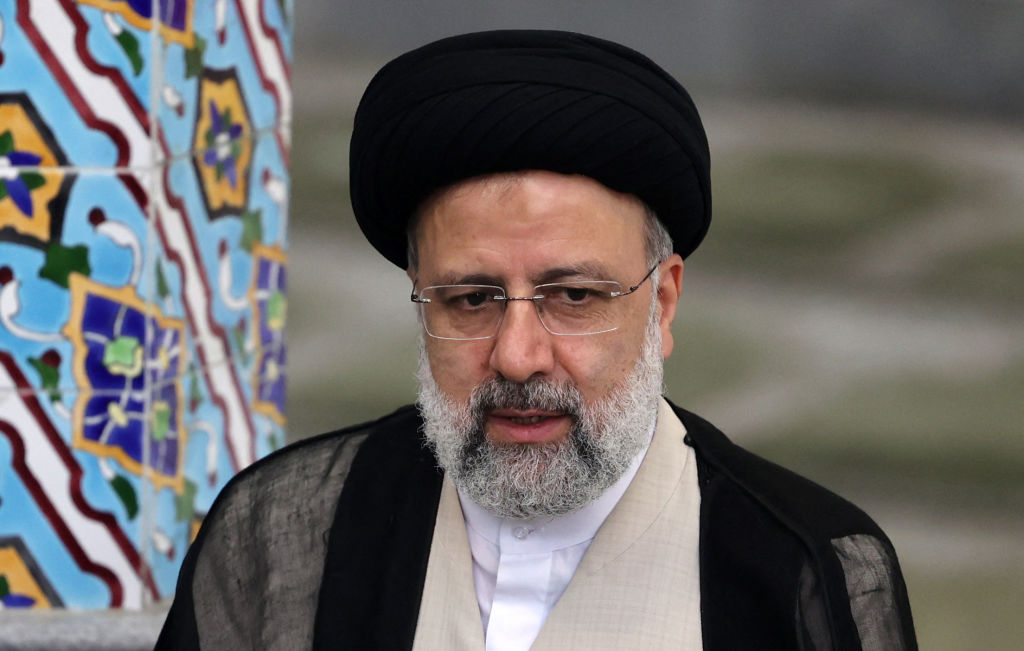What Ebrahim Raisi's election means for Iran — and the U.S.


A free daily email with the biggest news stories of the day – and the best features from TheWeek.com
You are now subscribed
Your newsletter sign-up was successful
Ebrahim Raisi, a hardliner favored by Iran's supreme leader Ayatollah Ali Khamenei, handily won Saturday's Iranian presidential election, which saw historically low turnout. He'll take over for the more moderate incumbent President Hassan Rouhani in August. That will obviously mean changes at home, but it should also affect the Tehran-Washington relationship.
Domestically, the Crisis Group's Ali Vaez explained to PBS NewsHour that the 82-year-old Khamenei appears to be preparing for his succession, which will be "a very pivotal moment" for Iran. So, he's "empowering a client and trusted ally ... to make sure that transition happens smoothly." Subsequently, Vaez expects there will be more repression "in the short run," but "if the system fails to respond" to Iranians' economic hardship, "I think they're sitting on a ticking time bomb."
Raisi's victory, meanwhile, may actually help solidify the re-establishment of a nuclear pact between the U.S. and Iran, despite Raisi harboring more hostility toward Washington than his predecessor. Vaez and The New York Times contend Khamenei is pulling the strings here and will push Rouhani to finish negotiations in the next few weeks, understanding that getting the U.S. to lift oil sanctions is paramount to Iran's economy bouncing back. But this way, the moderates will take the heat for "capitulating to the West and bear the brunt of popular anger inside Iran if sanctions relief doesn't rescue the nation's stricken economy," the Times notes. And if the sanctions relief does bring about improvement? Well, then Raisi can take credit for the success. Vaez added that it's also not out of the question Raisi's government would be "open to negotiating a follow-on agreement" with the Biden administration. Read more at The New York Times.
The Week
Escape your echo chamber. Get the facts behind the news, plus analysis from multiple perspectives.

Sign up for The Week's Free Newsletters
From our morning news briefing to a weekly Good News Newsletter, get the best of The Week delivered directly to your inbox.
From our morning news briefing to a weekly Good News Newsletter, get the best of The Week delivered directly to your inbox.
A free daily email with the biggest news stories of the day – and the best features from TheWeek.com
Tim is a staff writer at The Week and has contributed to Bedford and Bowery and The New York Transatlantic. He is a graduate of Occidental College and NYU's journalism school. Tim enjoys writing about baseball, Europe, and extinct megafauna. He lives in New York City.
-
 The ‘ravenous’ demand for Cornish minerals
The ‘ravenous’ demand for Cornish mineralsUnder the Radar Growing need for critical minerals to power tech has intensified ‘appetite’ for lithium, which could be a ‘huge boon’ for local economy
-
 Why are election experts taking Trump’s midterm threats seriously?
Why are election experts taking Trump’s midterm threats seriously?IN THE SPOTLIGHT As the president muses about polling place deployments and a centralized electoral system aimed at one-party control, lawmakers are taking this administration at its word
-
 ‘Restaurateurs have become millionaires’
‘Restaurateurs have become millionaires’Instant Opinion Opinion, comment and editorials of the day
-
 NIH director Bhattacharya tapped as acting CDC head
NIH director Bhattacharya tapped as acting CDC headSpeed Read Jay Bhattacharya, a critic of the CDC’s Covid-19 response, will now lead the Centers for Disease Control and Prevention
-
 Witkoff and Kushner tackle Ukraine, Iran in Geneva
Witkoff and Kushner tackle Ukraine, Iran in GenevaSpeed Read Steve Witkoff and Jared Kushner held negotiations aimed at securing a nuclear deal with Iran and an end to Russia’s war in Ukraine
-
 Pentagon spokesperson forced out as DHS’s resigns
Pentagon spokesperson forced out as DHS’s resignsSpeed Read Senior military adviser Col. David Butler was fired by Pete Hegseth and Homeland Security spokesperson Tricia McLaughlin is resigning
-
 Judge orders Washington slavery exhibit restored
Judge orders Washington slavery exhibit restoredSpeed Read The Trump administration took down displays about slavery at the President’s House Site in Philadelphia
-
 Hyatt chair joins growing list of Epstein files losers
Hyatt chair joins growing list of Epstein files losersSpeed Read Thomas Pritzker stepped down as executive chair of the Hyatt Hotels Corporation over his ties with Jeffrey Epstein and Ghislaine Maxwell
-
 Judge blocks Hegseth from punishing Kelly over video
Judge blocks Hegseth from punishing Kelly over videoSpeed Read Defense Secretary Pete Hegseth pushed for the senator to be demoted over a video in which he reminds military officials they should refuse illegal orders
-
 Trump’s EPA kills legal basis for federal climate policy
Trump’s EPA kills legal basis for federal climate policySpeed Read The government’s authority to regulate several planet-warming pollutants has been repealed
-
 House votes to end Trump’s Canada tariffs
House votes to end Trump’s Canada tariffsSpeed Read Six Republicans joined with Democrats to repeal the president’s tariffs
